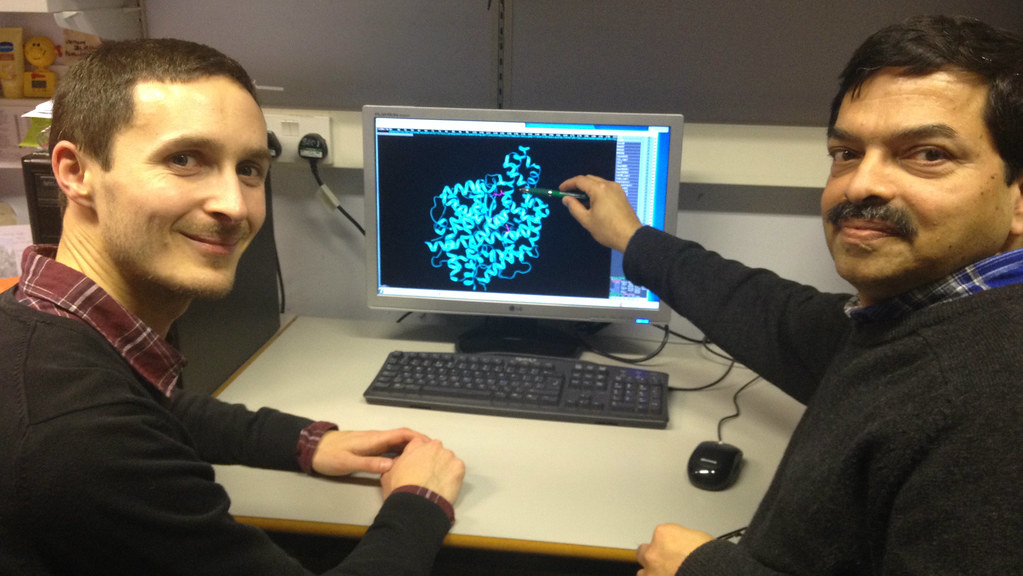Research by scientists from the Department of Biology & Biochemistry has shed light on one of the causes of a rare genetic kidney disorder that causes stillbirth or death soon after birth.
Professor Ravi Acharya and Dr Geoffrey Masuyer worked with researchers in France to understand how specific mutations in a gene coding for Angiotensin I-Converting Enzyme (ACE) lead to a disease called Renal Tubular Dysgenesis (RTD).
The normal ACE protein is attached to the membrane where it can be cleaved and found circulating in the blood. It acts as a chemical messenger and can activate biomolecules with a variety of functions, including blood pressure regulation.
Acharya and Masuyer created molecular models of the 3D structures of mutant ACE proteins implicated in the disease. They found that the structural changes either disrupted protein folding and insertion into the membrane, or prevented the ACE from being secreted altogether.
Their work, published in the journal /Human Molecular Genetics/, highlights the importance of ACE for development of the kidneys in the growing foetus. The work is supported by the Medical Research Council (UK).
Professor Acharya commented: "This research is important because it provides the molecular basis for understanding the role of ACE in human RTD."

